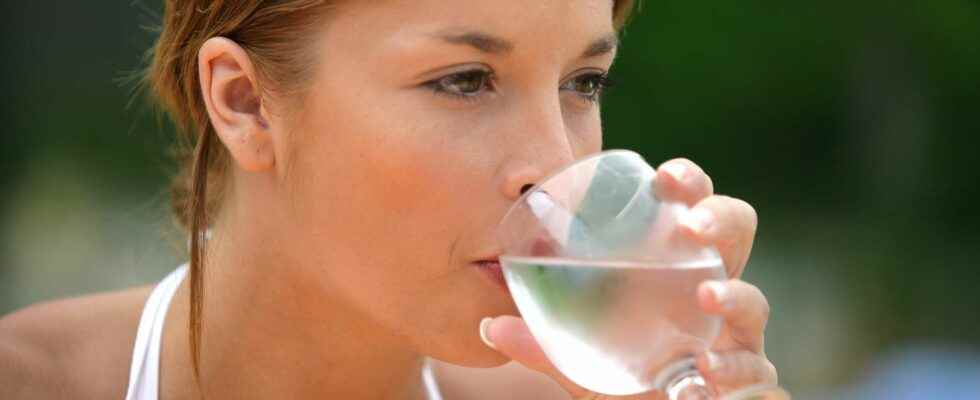Drinking enough is essential to replenish the water eliminated daily. But do you absolutely have to force yourself to swallow 1.5 liters of water as we often hear? This figure is actually nothing scientific.
You will also be interested
[EN VIDÉO] Fontus turns air into drinking water using solar energy When one is in nature, it is not always easy to obtain drinking water. A young Austrian designer and photographer has however found an original solution: to recover the humidity of the air to drink it with a gourd. Here is a video presentation of its prototype.
We commonly hear that we should drink 1.5 liters of water a day, or about eight glasses of 200 ml, even if you are not really thirsty. This observation is based on the principle that we eliminate approximately two liters of water per day, through urine, perspiration and respiration. Taking into account foods that provide about 0.5 liters of water, our daily needs would therefore amount to 1.5 liters.
Kidneys naturally regulate water balance
Except that this average means nothing at all. Because the needs are highly variable according to the corpulence of the individual, his age, his activity physicalthe outside temperature or ingested food. A thin and small person will logically have lower needs than a larger person. In France, nutritional recommendations recommend drinking 30 ml per kilo of body weight (in addition to the water contained in food), plus 0.5 liters of additional water for each degree above 38°C.
But even this rule should be taken with a grain of salt. Because our body is in fact able to adapt to water intake, thanks to the kidneys which will adjust the quantity of urine produced and its concentration in salts. minerals (sodium, potassium, calcium…). When water losses are greater than inflows, theosmolarity plasma decreases and the kidneys will naturally retain water. A thirst signal is then triggered by stimulation thirst centers located in thehypothalamus.
Drinking too much or not enough: what are the consequences?
Corn drink too much compared to his needs, is he really dangerous? It is necessary to ingest more than 10 liters of water per day, a threshold rarely reached, to cause harmful consequences on health. But excessive consumption can also lead to health problems. sleepbecause it forces you to get up often at night to go to the toilet.
Conversely, the dehydration can lead to severe problems: dizziness, headaches, drop in blood pressure, cognitive disorders or even loss of consciousness. Beyond a loss of 10% in water, dehydration can even be fatal. drink enough also helps prevent kidney stones, urinary infections and the constipation.
In short, unless you have a particular health problem, the amount of water you need to see each day is the amount you feel you need. You should also know that the thirst signal is triggered more particularly during meals. Be careful to drink enough if you are on a diet.
Interested in what you just read?
Subscribe to the newsletter Health question of the week : our answer to a question you ask yourself (more or less secretly). All our newsletters
